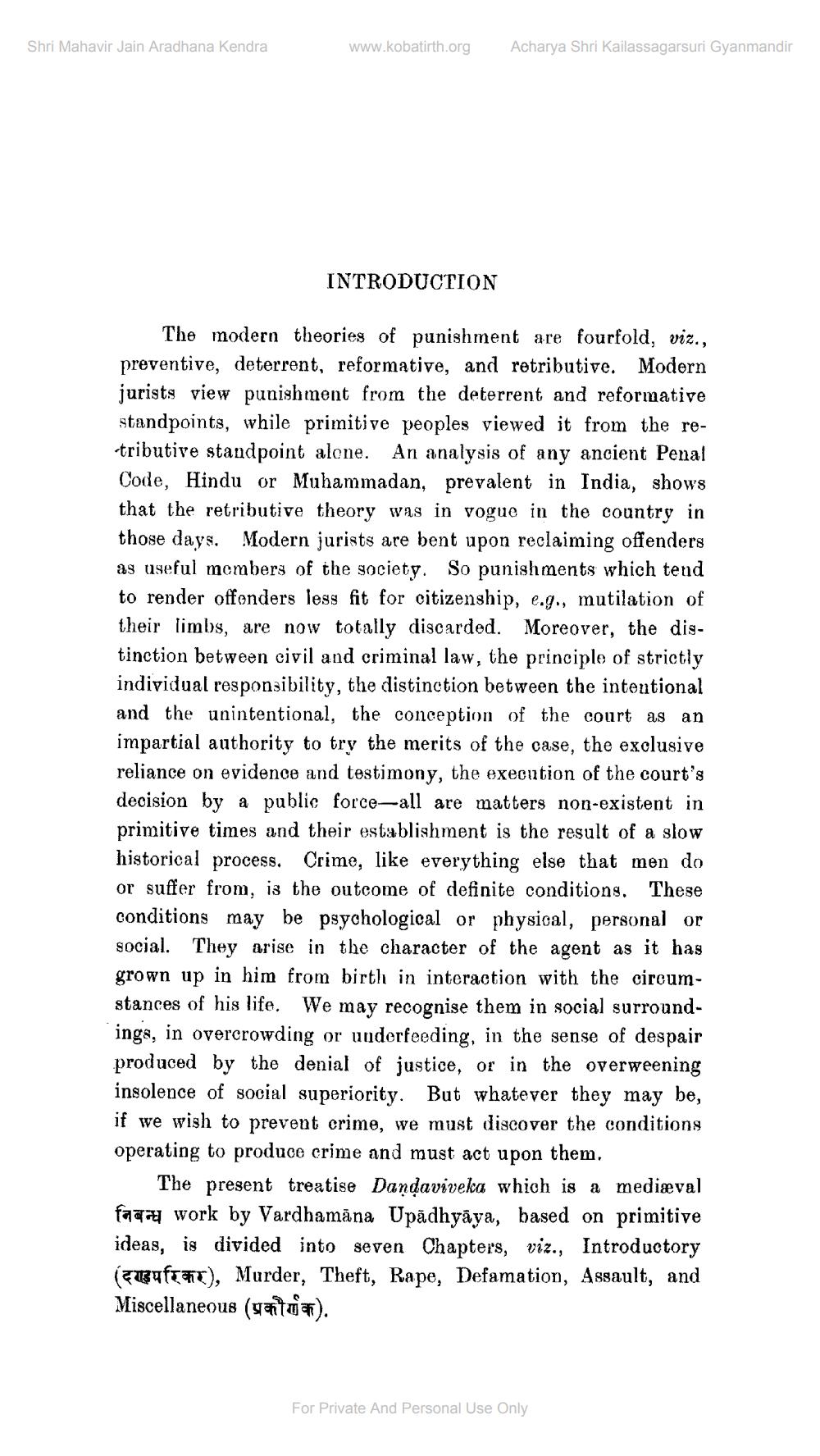Book Title: Dandvivek Author(s): Vardhaman, Kamal Krishna Publisher: Oriental Institute View full book textPage 6
________________ Shri Mahavir Jain Aradhana Kendra www.kobatirth.org Acharya Shri Kailassagarsuri Gyanmandir INTRODUCTION The modern theories of punishment are fourfold, viz., preventive, deterrent, reformative, and retributive. Modern jurists view punishment from the deterrent and reformative standpoints, while primitive peoples viewed it from the retributive standpoint alone. An analysis of any ancient Penal Code, Hindu or Muhammadan, prevalent in India, shows that the retributive theory was in vogue in the country in those days. Modern jurists are bent upon reclaiming offenders as useful members of the society. So punishments which tend to render offenders less fit for citizenship, e.g., mutilation of their limbs, are now totally discarded. Moreover, the distinction between civil and criminal law, the principle of strictly individual responsibility, the distinction between the intentional and the unintentional, the conception of the court as an impartial authority to try the merits of the case, the exclusive reliance on evidence and testimony, the execution of the court's decision by a public force--all are matters non-existent in primitive times and their establishment is the result of a slow historical process. Crime, like everything else that men do or suffer from, is the outcome of definite conditions. These conditions may be psychological or physical, personal or social. They arise in the character of the agent as it has grown up in him from birth in interaction with the circumstances of his life. We may recognise them in social surroundinga, in overcrowding or underfeeding, in the sense of despair produced by the denial of justice, or in the overweening insolence of social superiority. But whatever they may be, if we wish to prevent crime, we must discover the conditions operating to produce crime and must act upon them, The present treatise Dandaviveka which is a mediæval faqa work by Vardhamāna Upādhyāya, based on primitive ideas, is divided into seven Chapters, viz., Introductory (Fuft#r), Murder, Theft, Rape, Defamation, Assault, and Miscellaneous (910). For Private And Personal Use OnlyPage Navigation
1 ... 4 5 6 7 8 9 10 11 12 13 14 15 16 17 18 19 20 21 22 23 24 25 26 27 28 29 30 31 32 33 34 35 36 37 38 39 40 41 42 43 44 45 46 47 48 49 50 51 52 53 54 55 56 57 58 59 60 61 62 ... 426
